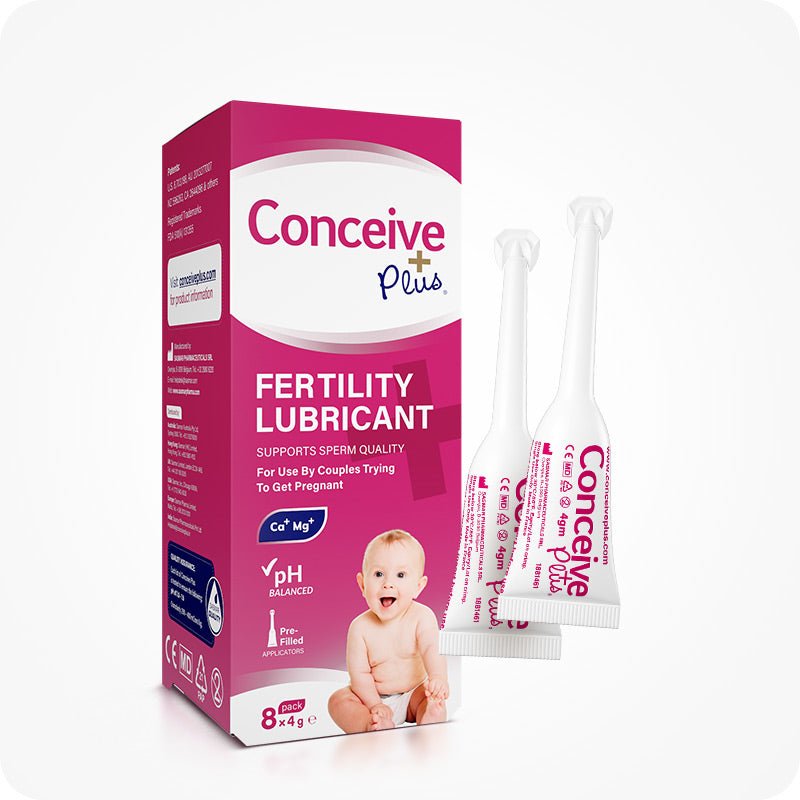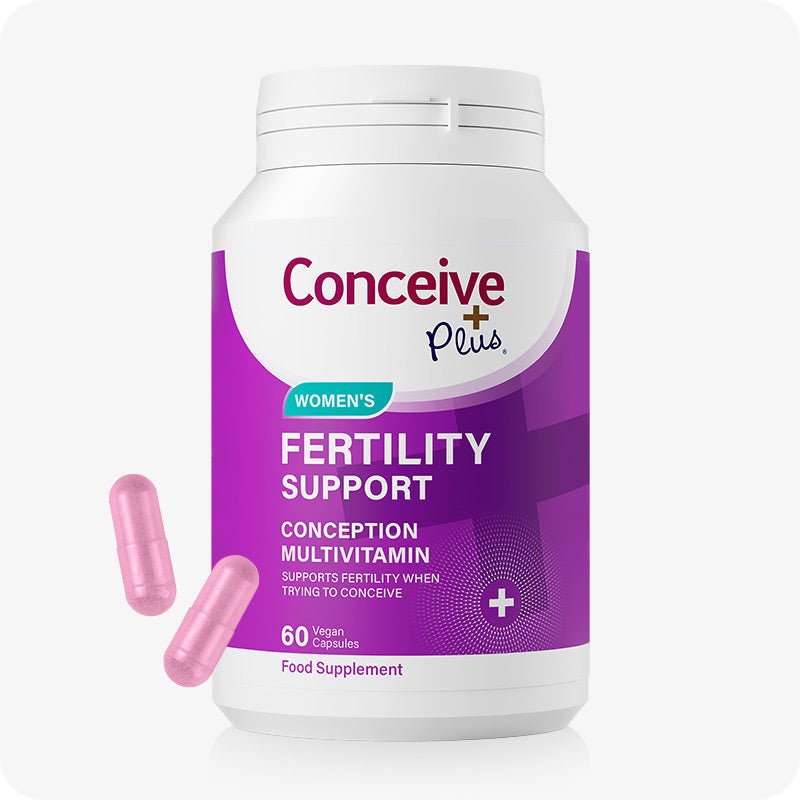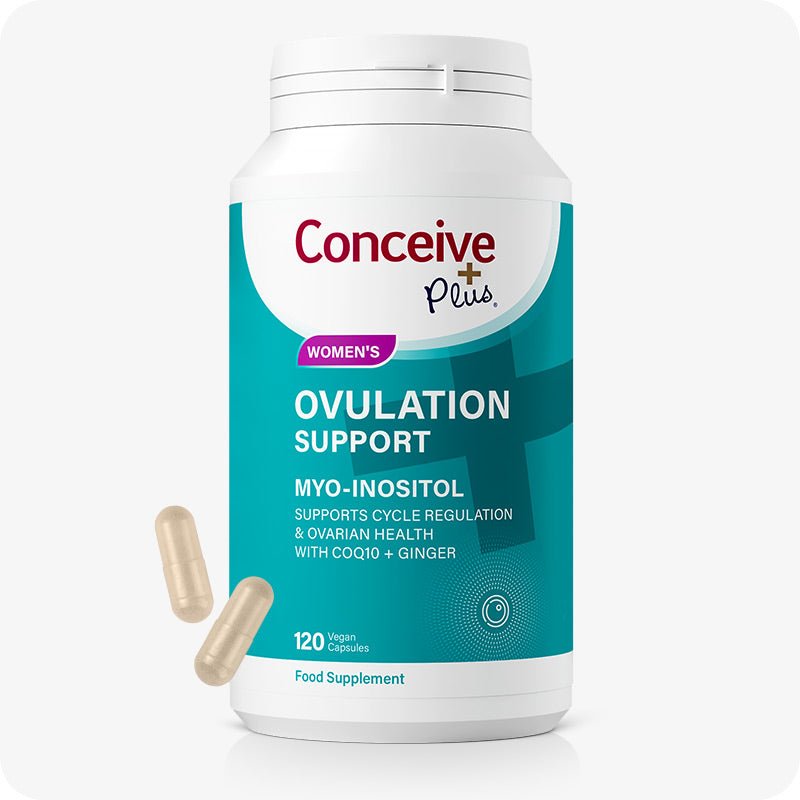What Causes Sickness in the Morning? Understanding and Managing Morning Nausea

Morning sickness is commonly linked to pregnancy, but feeling sick in the morning isn’t limited to expectant mothers. Over 80% of pregnant women experience some level of nausea and vomiting, but you can’t take it as a definitive pregnancy sign [1]. So what causes sickness in the morning, and how can you differentiate?
Many people experience feeling sick on a morning or sickness in the morning not pregnant, which often prompts questions about its causes. Whether it’s related to pregnancy or not, morning nausea can range from mild unease to intense episodes that disrupt daily routines. This article will discuss when morning sickness starts, when does morning sickness usually end, and explore practical ways to manage morning nausea, along with insights into why do I feel sick in the morning and when does morning sickness come and when does morning sickness stop for those who are pregnant.
Understanding Morning Sickness in Pregnancy
Morning sickness pregnancy is one of the earliest and most common signs of pregnancy. Although often referred to as morning sickness, the nausea can occur at any time of day or night, making it a misnomer in some cases. So, what causes morning sickness in pregnancy? Or when do you experience morning sickness? The answer largely revolves around hormonal changes, particularly the rise in human chorionic gonadotropin (hCG) and estrogen levels, which can trigger nausea [2].
- When does morning sickness start in pregnancy? Morning sickness usually begins around the 6th week of pregnancy, though some women may experience symptoms as early as the 4th week. Many first-time mothers ask, how early can morning sickness start? It can vary from person to person, with some women noticing it just days after a missed period.
- When is morning sickness the worst? Most women find that nausea peaks between weeks 9 and 11 of pregnancy. Severe symptoms can persist throughout the day, and in rare cases, the condition may develop into hyperemesis gravidarum, which is extreme morning sickness requiring medical intervention.
Duration of Morning Sickness
How long does morning sickness last? The duration of morning sickness can vary significantly among women. In most cases, it begins during the first trimester, typically around 6 weeks, although some women may notice it earlier. This raises questions like, how early on does morning sickness start? For some, symptoms may begin as early as 4 weeks, shortly after a missed period. How fast can morning sickness start? Hormonal changes can trigger nausea quite quickly, especially in sensitive individuals.
When do you feel morning sickness? It often occurs in the morning but can strike at any time of day or night. For many women, symptoms begin to subside by the 12th to 14th week as hormone levels stabilize. However, when does morning sickness end? For some, it may persist into the second trimester or, rarely, throughout the entire pregnancy.
Curiosity often arises about whether morning sickness is influenced by the baby’s sex. When does morning sickness start with a girl vs. a boy? While anecdotal evidence suggests carrying a girl may lead to more severe nausea or severe morning sickness can be due to higher hormone levels, scientific studies provide limited support for this claim.
If you’re wondering when can you have morning sickness, it’s important to note that it typically begins in the early weeks of pregnancy. Understanding what helps morning sickness in the first trimester—such as eating small, frequent meals or sipping ginger tea—can make the experience more manageable. While everyone’s journey is unique, asking when would you get morning sickness or how soon can morning sickness start highlights the variation among pregnancies and reinforces the need for personalized care and remedies.
What Does Morning Sickness Feel Like?
What does morning sickness feel like? It often begins as a queasy, unsettled sensation in the stomach and may progress to vomiting in some cases. These morning sickness symptoms can vary from mild discomfort to more severe episodes, making it challenging to find consistent relief. Many women notice they are feeling sickly in the mornings, though it’s not uncommon for the nausea to occur at other times of the day. Does morning sickness come and go? Yes, it can fluctuate, with some experiencing brief moments of relief and others feeling persistent discomfort.
For those wondering how early does morning sickness start, it typically begins in the first trimester, around 4 to 6 weeks of pregnancy. While the duration varies, many ask, when can morning sickness stop? It often subsides by the end of the first trimester but can last longer for some. Exploring morning sickness cures and strategies, such as eating small meals or staying hydrated, can offer relief from morning sickness and help manage morning sickness in the morning effectively. If you're seeking advice on how can I avoid morning sickness or how do i stop morning sickness, consulting with a healthcare provider for tailored recommendations can be beneficial.
Causes of Morning Sickness When Not Pregnant
Dealing with morning sickness not pregnant can be confusing, especially when symptoms mimic those commonly associated with pregnancy. Understanding the underlying reasons can provide clarity and help identify effective solutions.
- Low Blood Sugar: Overnight fasting can lead to a drop in blood sugar, causing nausea in the morning. Having a light snack before bed is one suggestion for how to help morning sickness-like symptoms in non-pregnant individuals [3].
- Acid Reflux or GERD: Gastroesophageal reflux disease (GERD) can result in stomach acid backing up into the esophagus, leading to discomfort, a sour taste, and nausea. This is a common reason behind why am I feeling sick in the morning or why do I feel sickly in the morning [4].
- Stress and Anxiety: These conditions can disrupt digestion and create feelings of unease upon waking, mimicking morning sickness.
- Medications: Taking certain medications on an empty stomach may cause nausea. Adjusting the timing of your medication or eating a small meal before taking them can help [5].
If these symptoms persist, it may be beneficial to explore morning sickness treatment methods that are tailored to non-pregnant individuals. In pregnancy, symptoms are more predictable, such as knowing when can morning sickness start (usually around 4–6 weeks) and when do you get morning sickness during the day. For non-pregnant individuals, the focus shifts to identifying specific triggers and what helps with morning sickness-like sensations. Remedies that work for pregnant individuals, like ginger tea or crackers, can sometimes be adapted for non-pregnancy-related nausea to determine what relieves morning sickness symptoms.
Remedies for Morning Sickness
When dealing with morning nausea, whether due to pregnancy or other reasons, various strategies can provide relief:
- Morning Sickness Remedies: Many women find relief with remedies like ginger tea, lemon water, or small, frequent meals. Eating crackers or dry toast upon waking can also ease nausea by regulating blood sugar levels.
- Medication Options: For those with severe or horrible morning sickness, certain morning sickness tablets may be prescribed. If you are looking for a cure for morning sickness in pregnancy, medications like doxylamine and pyridoxine (Vitamin B6) are often safe options [6].
- Home Remedies: For non-pregnant individuals, herbal teas, deep breathing exercises, and staying hydrated can be effective. While there is no single morning sickness cure, these options can help manage symptoms effectively.
When to Seek Medical Attention
When natural remedies fail to provide relief, morning sickness medication can be an effective alternative. For pregnant individuals, pills for morning sickness in pregnancy, such as a combination of doxylamine and pyridoxine (Vitamin B6), are commonly recommended under a doctor’s guidance. These drugs for morning sickness in pregnancy are particularly helpful for managing awful morning sickness or persistent nausea that interferes with daily life.
For non-pregnant individuals experiencing sickness in morning not pregnant, over-the-counter options may help alleviate symptoms. Persistent nausea, often caused by conditions like acid reflux or stress, might benefit from a targeted treatment for morning sickness, such as antiemetics or digestive aids.
Many people wonder, why do I feel sick every morning? Whether it’s due to pregnancy or other factors, bad morning sickness can disrupt your routine. It’s also common to ask, can morning sickness come and go? Yes, nausea may fluctuate in intensity, making it essential to have remedies at hand.
Medications like morning sickness nausea medicine or an effective morning sickness pill can complement natural remedies by providing faster relief. Additionally, knowing how to ease morning sickness through hydration and small, frequent meals can enhance the effectiveness of medication. Learning how to reduce morning sickness helps manage both physical and emotional discomfort, whether during pregnancy or for other causes of feeling sick morning.
Lastly, if you’re questioning, is morning sickness good sign, it often is during pregnancy, as it indicates healthy hormonal levels. Regardless of the cause, consulting a healthcare provider ensures you receive the right treatment and advice tailored to your specific situation.
Lifestyle Changes for Preventing Morning Sickness
If you’re wondering how to avoid morning sickness in pregnancy or how to get rid of morning nausea not pregnant, lifestyle adjustments can make a difference. Small, frequent meals help stabilize blood sugar, while foods rich in protein can reduce nausea. Avoiding heavy or spicy meals, especially in the evening, can also alleviate symptoms.
In addition, staying well-hydrated and maintaining a balanced diet are crucial for minimizing symptoms. Managing stress through relaxation techniques, like deep breathing and meditation, can also help reduce morning nausea, especially in individuals experiencing non pregnancy morning sickness.
Morning Sickness in Pregnancy: Is It a Good Sign?
Many wonder, is morning sickness a good sign? The answer is often yes. Morning sickness is a good sign because it typically indicates that the body is producing high levels of pregnancy hormones, such as human chorionic gonadotropin (hCG) and estrogen, which are essential for supporting a healthy pregnancy. These hormonal changes are what trigger nausea, which is a common feature of early pregnancy.
However, if you don’t feel sick in the morning or experience nausea, it isn’t necessarily a cause for concern. Every pregnancy is different, and some women never experience what is morning sickness at all. Morning sickness when does it start? For most women, nausea begins around 6 weeks into pregnancy, though some may notice symptoms earlier, raising questions like how soon does morning sickness start?
Interestingly, nausea doesn’t always limit itself to mornings. Many women experience morning sickness at night or even morning sickness in the night, which can be equally disruptive. Knowing what helps morning sickness in the first trimester, such as eating small, frequent meals or using ginger-based remedies, can ease discomfort.
For those wondering when will morning sickness end or when will morning sickness stop, the symptoms often subside by the end of the first trimester, usually between weeks 12 and 14. However, if you’re sick in the morning not pregnant, other factors such as low blood sugar or digestive issues may be at play. While nausea can be a reassuring sign of pregnancy, its absence is not inherently negative, as healthy pregnancies can vary greatly from one individual to another.
Medications for Morning Sickness
When natural remedies aren’t enough, morning sickness medication options are available. Medications such as antiemetics can help manage symptoms, and pills for morning sickness in pregnancy like doxylamine and pyridoxine are commonly used with a doctor’s recommendation. Over-the-counter options are available for non-pregnant individuals experiencing persistent morning nausea [6].
Managing Nausea Throughout the Day
Though nausea often peaks in the morning, many individuals experience morning and night sickness or even morning sickness in the evening. Sticking to a consistent routine, with regular small meals, hydrating, and avoiding heavy foods in the evening, can reduce evening sickness.
Final Tips for Easing Morning Sickness
If you’re still asking, how to stop morning sickness in early pregnancy, or seeking relief from non-pregnancy-related morning sickness, here are some final tips:
- Stay Hydrated: Dehydration worsens nausea, so drinking small sips of water frequently throughout the day can help.
- Get Plenty of Rest: Fatigue can exacerbate morning sickness, so prioritize rest.
- Use Acupressure Bands: Some people find that wearing acupressure wristbands can relieve nausea.
- Consider Taking Vitamin B6: This vitamin is often recommended for reducing nausea in early pregnancy.
Conclusion
Whether pregnancy-related, what causes sickness in the morning, or morning sickness no pregnancy, nausea can significantly affect daily life and overall well-being. Knowing what causes morning sickness is essential to managing it effectively. Hormonal changes, digestive issues, or even lifestyle factors may be responsible for nausea, whether in pregnancy or cases of not pregnant morning sickness.
For expectant mothers, questions like how early can you get morning sickness or how soon can you experience morning sickness are common. Typically, symptoms begin around the 6th week, though how early will you get morning sickness or how early can you have morning sickness in pregnancy can vary depending on individual hormone levels. Interestingly, some speculate that the baby’s sex may play a role in nausea severity, leading to the question, when does morning sickness start with a boy? However, there is no solid evidence supporting this theory.
Finding morning sickness relief often starts with natural remedies, such as eating small, frequent meals, staying hydrated, and incorporating ginger into your diet. For those in the first trimester, knowing what helps morning sickness in first trimester can be life-changing. If symptoms are severe, morning sickness pills may be recommended by a healthcare provider to provide effective relief.
If symptoms persist or worsen, consulting a healthcare professional is essential. Whether you’re experiencing morning sickness and not pregnant or inquiring about morning sickness how long does it last, addressing the root cause is critical. What causes sickness in the morning can be anything. By exploring the available treatments and making lifestyle adjustments, you can better manage this often temporary but challenging condition.
Citations
- Gadsby R, Barnie-Adshead AM, Jagger C. A prospective study of nausea and vomiting during pregnancy. Br J Gen Pract. 1993 Jun;43(371):245-8. Erratum in: Br J Gen Pract 1993 Aug;43(373):325. PMID: 8373648; PMCID: PMC1372422.
- Vellacott ID, Cooke EJ, James CE. Nausea and vomiting in early pregnancy. Int J Gynaecol Obstet. 1988 Aug;27(1):57-62. doi:10.1016/0020-7292(88)90088-4. PMID: 2905299.
- Riskin-Mashiah S, Younes G, Damti A, Auslender R. First-trimester fasting hyperglycemia and adverse pregnancy outcomes. Diabetes Care. 2009 Sep;32(9):1639-43. doi:10.2337/dc09-0688. Epub 2009 Jun 23. PMID: 19549728; PMCID: PMC2732138.
- Fill Malfertheiner, S., Malfertheiner, M.V., Kropf, S. et al. A prospective longitudinal cohort study: evolution of GERD symptoms during the course of pregnancy. BMC Gastroenterol 12, 131 (2012). https://doi.org/10.1186/1471-230X-12-131
- American Pregnancy Association. Morning Sickness (https://americanpregnancy.org/healthy-pregnancy/pregnancy-health-wellness/morning-sickness-during-pregnancy/). Accessed Nov 17, 2024.
- Brott NR, Reddivari AKR. Doxylamine. [Updated 2023 Jun 5]. In: StatPearls [Internet]. Treasure Island (FL): StatPearls Publishing; 2024 Jan-. Available from: https://www.ncbi.nlm.nih.gov/books/NBK551646/













